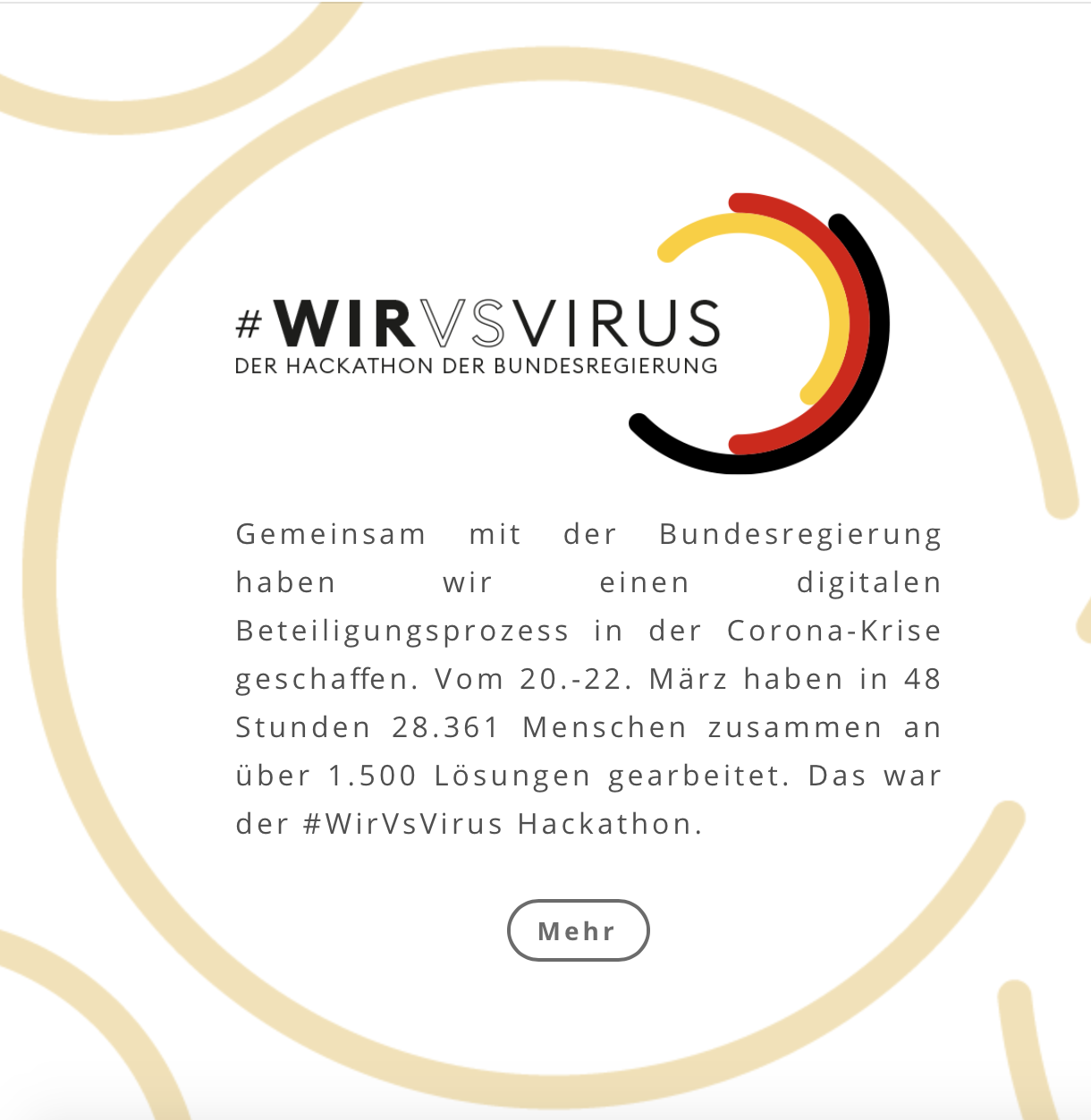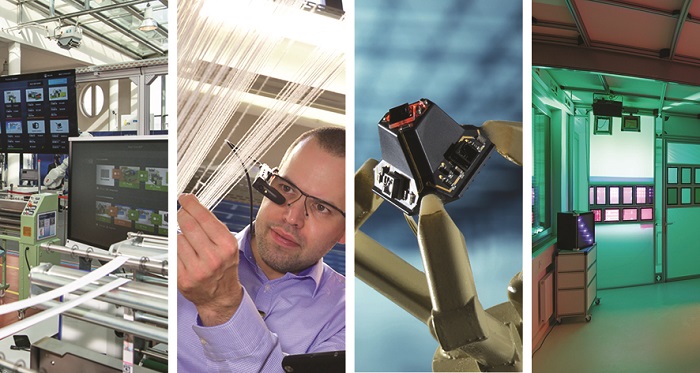
A diverse pool of 28,000 participants came together to collectively "hack" digital challenges related to the Corona crisis resulting in a great variety of solutions, co-created by civil society and public authorities.
A COLLECTIVE SEARCH FOR ANSWERS TO SUDDEN CHALLENGES
This project set out to pool creative potential within civil society, to engage the public to work together with the government and local authorities on solutions to the various challenges associated with COVID-19. The close cooperation between federal and local government, civil society, and corporate and third sectors is still relatively novel and characterises the innovative approach of the project.
WE VERSUS THE VIRUS
The term "hacking" describes the process of working together to come up with creative solutions to challenges. Between 20 and 22 March 2020, over 28,000 citizens responded to an invitation to participate in the #WirVsVirus (#WeVsVirus) hackathon. Participants worked together on COVID-19 challenges in a digital environment. It was an open invitation to anyone who had the time, inclination, and internet access. The hackathon challenges came from society itself, from 80 million citizens as well as federal ministries. With over 43,000 registrations and 28,000 participants, #WirVsVirus is the world's biggest hackathon.
THE SOLUTION-FINDING COMMUNITY
The hackathon resulted in 1,500 solutions, a growing #WirVsVirus hack community, a support programme, and the realisation that problem-solving skills lying dormant within civil society need to be used more actively to find solutions to the challenges of our time. The hackathon allowed citizens to participate in co-creating solutions with the government and attracted a lot of participation from public servants and public authorities themselves. Around 200 of the 2,000 submitted challenges came from federal ministries. Over 3,000 experts signed up as mentors and helped to organise the hackathon workspace and guide participants through the process. On top of the impressive participation numbers, there was also great diversity among the participants. Female participation rates were close to 40%, 23% of participants were over the age of 45, and approximately half did not have a technological employment background. Younger participants supported pensioners via the telephone, while parents shared caring duties to participate. Additionally, over 1,000 companies offered their help in the form of resources and infrastructure support. #WirVsVirus is a blueprint for how future challenges can be tackled with a community-led, bottom-up approach.



